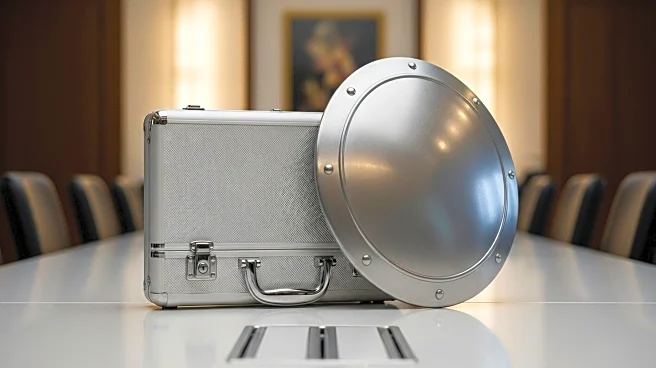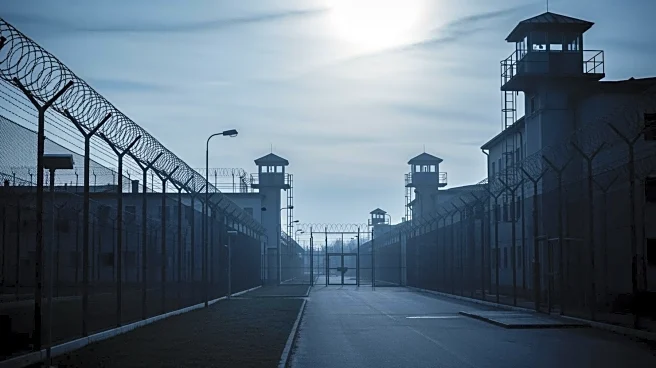What is the story about?
What's Happening?
Ukrainian President Volodymyr Zelenskyy is scheduled to meet with President Donald Trump at the White House on Friday to discuss the potential provision of long-range Tomahawk missiles to Ukraine. The meeting follows a phone call between the two leaders, during which Trump indicated the U.S. might approve the missiles to support Ukraine in its conflict with Russia. Zelenskyy's visit aims to strengthen Ukraine's defense capabilities and address energy resilience amid ongoing Russian attacks on infrastructure.
Why It's Important?
The potential approval of Tomahawk missiles for Ukraine represents a significant escalation in U.S. military support, allowing Ukraine to target deeper into Russian territory. This move could alter the dynamics of the conflict, increasing pressure on Russia and potentially straining U.S.-Russia relations. The discussions also highlight the strategic importance of Ukraine's energy infrastructure, which has been targeted by Russian attacks. The outcome of these talks could impact U.S. foreign policy and defense strategies, as well as the geopolitical landscape in Eastern Europe.
What's Next?
Zelenskyy's meeting with President Trump is part of broader high-level talks involving Ukrainian officials, including Prime Minister Yulia Svyrydenko. The discussions will focus on enhancing Ukraine's defense, securing energy resilience, and intensifying sanctions pressure on Russia. The visit comes amid heightened Russian attacks on Ukraine's infrastructure, with the potential U.S. missile provision likely to provoke further reactions from Moscow. The talks aim to solidify U.S. support and explore further assistance options.
Beyond the Headlines
The provision of long-range missiles to Ukraine could have broader implications for international diplomacy and military alliances. It may prompt discussions on the ethical and legal dimensions of military support in conflict zones, as well as the long-term impact on regional stability. The visit also underscores the role of international cooperation in addressing global security challenges, with the European Union expressing confidence in overcoming objections to new Russia sanctions.














